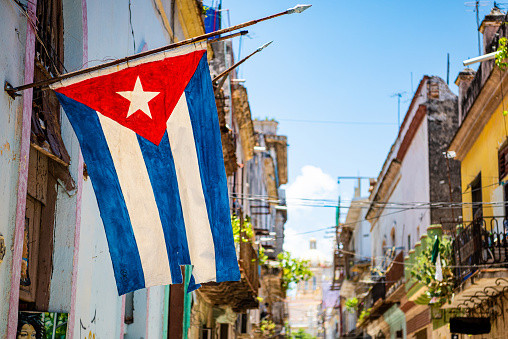
In Cuba, tempers are shortening as gas lines grow longer.
Cuba has been experiencing its worst fuel shortages in years since mid-April, which has led to analogies to the terrible disruptions Cubans saw after the demise of the Soviet Union.
Even at gas stations where there hasn't been fuel for days, lines go on for blocks. Havana typically has limited traffic since it is expensive to import and maintain cars, but several of the city's main thoroughfares are startlingly deserted.
In recent weeks, it seemed that more cars were parked in gas lines than were actually on the roads throughout much of the island.
Taxi driver Elien Reyes Castro lamented that it took two days in line to get enough petrol for a single day of delivering passengers while he waited to fill up his dilapidated 1954 Plymouth.
"I won't say what I think. It ain't easy, they sell too little, only 40 liters, that only gives me enough for one day, they won't give me more than that," he stated.
Cuba's communist-run government has attributed the problems to U.S. economic sanctions, but it has also acknowledged through state-run media that the oil-supplying nations have not been delivering the promised fuel, CNN reported.
For years, Venezuela has provided Cuba with an almost limitless supply of oil in return for Cuba sending medical staff, coaches for sports, and other employees to their communist partner.
That agreement, however, might be in jeopardy as Venezuelan officials deal with their crumbling economy, failing infrastructure, and a corruption scandal that has rocked the country's state-run oil company PDVSA.
According to Jorge Pión, a senior research researcher at the University of Texas at Austin's Energy Institute, "The first domino piece that falls out of this is Venezuela."
"It's selling its better-quality crude to customers that can pay in cash. So the good quality crude that Cuba used to get is no longer there because Cuba doesn't pay cash for crude oil," he added.
Pion stated that even while Cuba produces around half of the oil it requires, the island must blend it with the lighter crude imported from international partners to refine it.
The Caribbean country's economic pain has grown as a result of the shortfall, which comes as Cuba struggles with a pandemic-related tourism slump that hasn't abated and food prices that have skyrocketed due to rising inflation.
Even among foreign diplomats, who have their own allotted gas station but where, like everywhere else, there is infrequent delivery of fuel, late-night brawls have broken out at gas stations between cars accusing one another of cutting the line.
According to a diplomat who spoke with CNN, in a recent instance, Russian officials requested vehemently that their vehicles be allowed to move to the front of the long queue of vehicles because Russia is another significant petroleum supplier to Cuba. Requests for comment from the Russian Embassy in Havana were not entertained.
According to the Communist party daily Granma, Cuban President Miguel Diaz-Canel remarked on Friday, "We are living difficult moments but are going to come out ahead."
That optimism was dashed when the government decided to cancel the annual, enormous May Day parade in Havana's expansive Revolution Square due to fuel shortages.
Hundreds of thousands of Cuban workers march past a mural of the Argentine revolutionary Ernesto "Che" Guevara during the International Workers March, one of the most important political gatherings on the island.
Top leaders from the island and leftist organizations from across the world are often present.
Ulises Guilarte de Nacimiento, the Secretary General of the Cuban Workers Federation, declared that smaller-scale marches will be held on May 1 in numerous districts "with maximum austerity" so that locals wouldn't have to rely on the increasingly scarce public transit system.
Then, following a significant downpour on Sunday, officials declared that the casual celebrations would now take place on Friday due to "weather conditions." The mounting uncertainty of many Cubans was only exacerbated by the sunny skies that day in Havana.
However, some claimed that the gas crisis meant they would not march on May Day no matter where or how the celebrations took place.
According to Jaqueline Rodriguez, she, her husband, and their teenage daughter left their town where the gas stations were closed and drove an hour to Havana to fill up their car. She told CNN that the family spent the three days of waiting in their automobile.
She asked, "How can we go to May Day when we have to be in a line for gas?"
© 2025 Latin Times. All rights reserved. Do not reproduce without permission.




